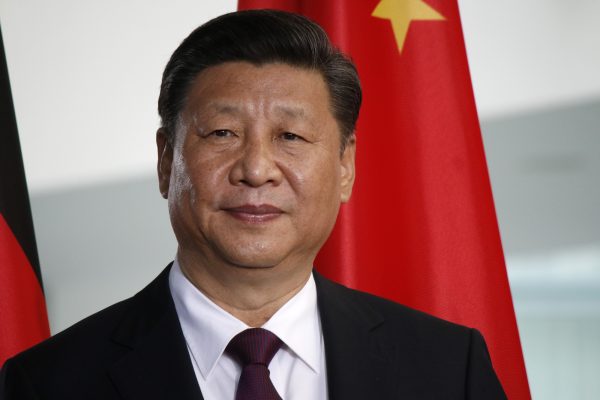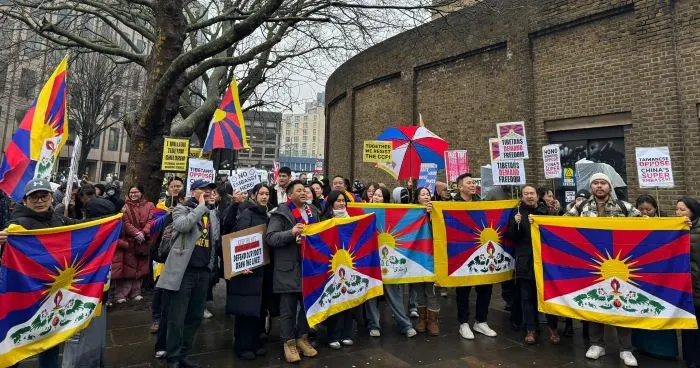Italy’s far-right Georgia Meloni opposes China’s expansionist policy ?
Italy’s new PM Giorgia Meloni seems allergic to China and its expansionist ambitions. Forty five year old Meloni has openly spoken against China and its stand on Ukraine war. Her remarks have left Chinese observers confused.
Meloni’s Brothers of Italy, a right-wing coalition led by a party with neo-fascist roots on the extreme right, had clearly stated last month that Italy look to limit the communist China’s economic expansion and continue to support Ukraine militarily if a rightist alliance wins in election. Under her leadership, Italy would not be “the weak link” in the Western alliance, she had stated.
On Ukraine issue, she said that China was quieter, but its penetration is reaching everywhere and that has made her upset.
In an interview to Reuters in August end she said that she would not renew a Belt and Road Initiative (BRI) deal with China. Her remarks cannot be seen in isolation. Under the then Prime Minister Giuseppe Conte, Italy had signed a memorandum of understanding supporting China’s multi-trillion Belt and Road Initiative in 2019. Beijing had represented an opportunity to export made-in-Italy products. While the two countries were in the process of finalising the deal, US and European leaders cautioned Rome against signing a bilateral agreement with Beijing. PM Conte had reassured the public that the agreement was purely a commercial one, that favoured Italian national interests.
Beijing’s escalating crackdown in Hong Kong and a renewed global attention toward human rights abuses in Xinjiang sparked debate in Italy, where members of the lower chamber began asking the government to push back against China.Italy had also suspended talks over the potential sale of Italian truck-maker Iveco to China’s FAW Group – a move, seemingly benefited from coordination with France.
Italy had realised the disadvantages of joining BRI initiative which failed to provide desired results to Rome. The project benefitted China more because President Xi Jinping’s pet project had got a significant boost at home and abroad after Italy joined the BRI initiative. Italy is a member of the G-7, a founding member of both the EU and NATO and the third-largest economy of the eurozone. Western countries started viewing Rome as “the European weak link in the power struggle with China”. Rome’s new China policy under the Draghi administration thus sought a return to its “historical anchors” and showeda clearer vision of Italy’s international posture. Eventually, Rome backed out from Beijing’s Belt and Road Initiative and repositioned its ties with China. It went back to old Western alliances on the G7 table last year.
Meloni clearly stated that there is no political will on her part to favour Chinese expansion into Italy or Europe. She would oppose Europe’s drive to promote electric vehicles because the policy would favour China, a major producer of EV batteries.It may be noted here that Meloni had also taken a hardline stance against China and called on Italian athletes to boycott Beijing in the 2008 Olympics.
Meanwhile, Chinese observers are closely watching how diplomatic relations between Rome and Beijing would take shape under Meloni’s leadership. On its favourite BRI project, China claimed that the BRI has in many ways met Italy’s expectation of lifting its economy. Trade between China and Italy hit a record high of $73.95 billion in 2021, up 34.1 percent year-on-year. In the first seven months of this year, bilateral trade grew by 16 percent year-on-year. Italy is also the European country that has signed the most agreements on agricultural exports to China.
Also, as a key part of the BRI, large-scale infrastructure cooperation has presented new opportunities for Italy’s economic development. For instance, at the end of 2019, construction of Italy’s first semi-automated Vado Gateway Terminal, built with Chinese investment, was completed. This is a telling case of China-Italy cooperation under the BRI. Italy has a favorable geographical location in the Mediterranean region, and with the upgraded infrastructure, its position in the regional maritime transport could be improved, thus enhancing Italy’s economic strategic position in Europe.
China’s leading Global Times said that Italy has been trying to diversify its gas supply, but one of the main obstacles it faces is the limited port capacity to accommodate large liquefied natural gas tankers. If more Italian-Chinese port projects under the BRI had gone smoothly in previous years, Italians now would have no need to place so many orders on Chinese heating blankets to prepare for the upcoming winter.
As an important member of the EU, Italy should have a foreign policy that serves its interests and Europe’s interests, rather than following the American baton, Global Times article stated. China has expressed hope that Italy’s new government would not let the current political atmosphere to undermine its cooperation with China, and will stay on the pragmatic track for BRI.













